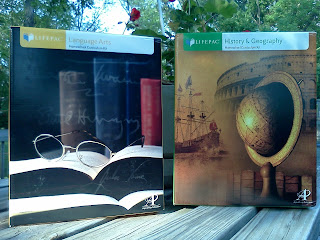 |
Me, Little League, Summer, 1981.
I was in the starting lineup by then. |
When I was 14, the batter in front of me was intentionally walked, loading the bases. This meant that the other team believed I was an easy out, more so than my teammate.
Here's the setting: Little League, Senior Division, Woodland Park, Portage, Indiana, Summer, 1980. Late in the game, runners on 2nd and 3rd bases. One batter in front of me, I'm on deck. I suddenly realize that the batter in front of me is getting an "intentional walk," meaning that the other team's catcher stands up straight (instead of crouching per usual), extends his catcher's mitt outside the strike zone, and the pitcher misses four times on purpose. The purpose of an intentional walk is to avoid the risk of the batter getting a hit and the runners on base scoring. Instead, the team wants to pitch to the next batter who is more likely to make an out.
I'm the batter likely to make an out. Fortunately, or not so fortunately, rules in force at that time required all players to have one at bat per game and play in the field at least three innings. My team was stuck with me, one of the subs who "sat the bench" hadn't gotten a hit yet all season. I step up to the plate and hear the courteous, if not skeptical, cheers of encouragement. The first pitch happens to be outside the strike zone for ball one. Same for the second pitch, ball two. If that happens two more times, I get a walk and a run scores because all bases have runners and they would all move up. I conclude that the pitcher doesn't want to risk ball three so he will pitch an easy one right in the middle of the strike zone.
He did, I swung, and got a hit over the third baseman's head into left field, a run scored, I pumped my fist, and somehow found myself on first base. A joy of summer.
 |
| Summer Vacation 2011 |
When I think of Summer Vacation (words capitalized because they are important), I think of joy, fun, freedom, no school, warm days, playing, friends, swimming, pretty much getting to do whatever I wanted whenever I wanted. I played tennis, rode my bicycle, went to the beach, hung out with friends. I had a newspaper delivery route job, so I'd get up in the morning, work, and have the rest of the day to myself. The freedom was multiplied because my Mom was a teacher, and she was free too, and was not afraid to express how happy she was about it.
Part of my vision as a homeschooling family is that we enjoy the gift that is Summer Vacation. Today, I still revere this time as special and desire my family to think so too. I suppose you could call me an "Advocate for Summer Vacation." That is a challenge because I don't have a three month vacation, I'm still slugging it out in the marketplace, but we have weekends, abundant daylight after work, holidays, vacation days. I'm call that a blessing and I'm having high hopes for another memorable season.
 |
| Still enjoying summers with my Mom |
As I write this, our family has just finished school day 180. Summer Vacation is here! On the other hand, the homeschooling freedom we enjoy means the journey from school books to back yards and swimsuits is short. The journey is also blurred because we have some math, spelling, and reading to do. I wonder what the kids think of Summer Vacation? I'll ask them this weekend. Then I'll give them the assignment to enjoy these moments, September will be here before you know it. This Summer has a special twist to it because Ryan transitions into a bona fide High School Freshman when Summer becomes Autumn. He is 14 now, just like I was once. Gotta get him "off the bench" and outside.
Dear reader, the assignment is the same for you. Will you enjoy your Summer Vacation again this year?
 |
| Giodorno's Pizza, Chicago |














